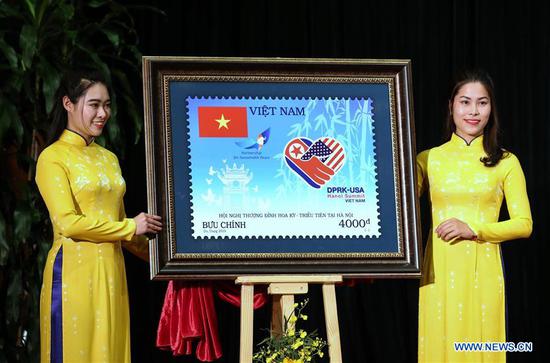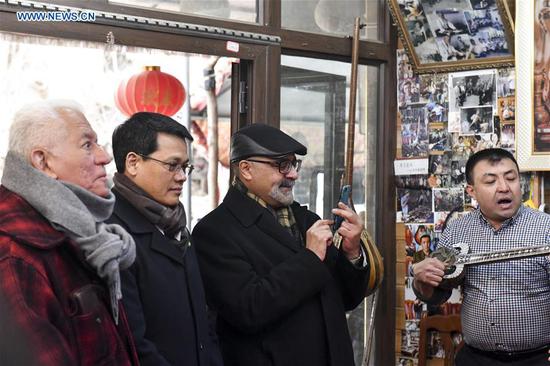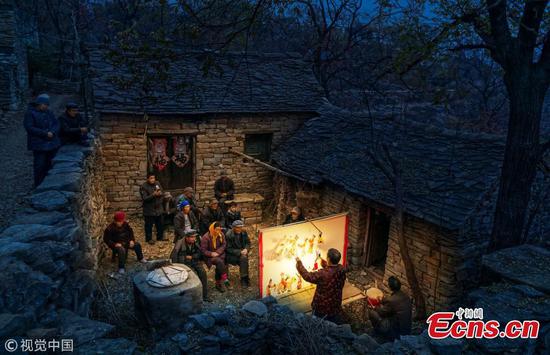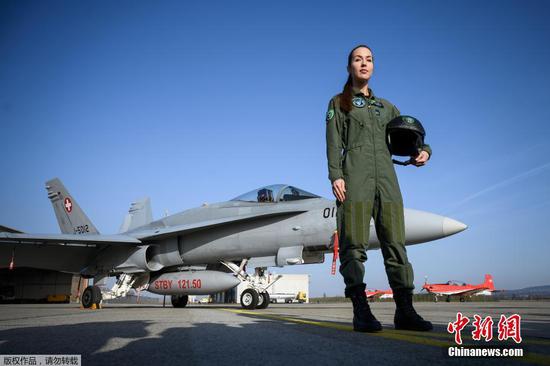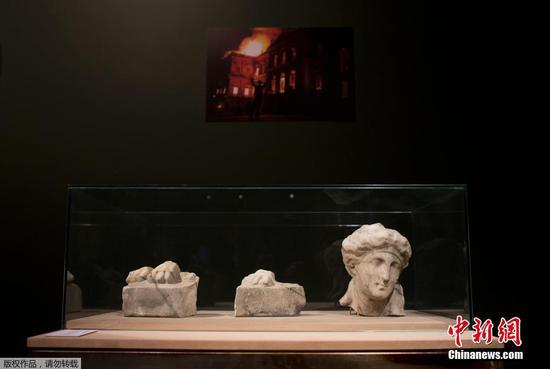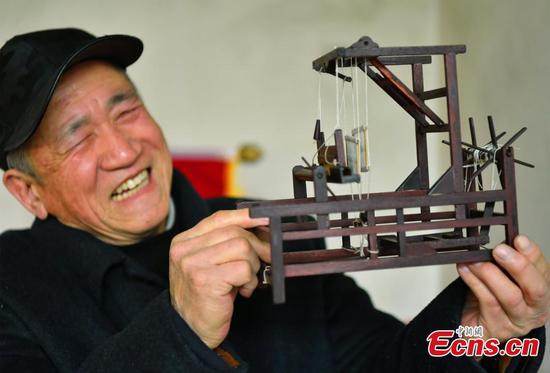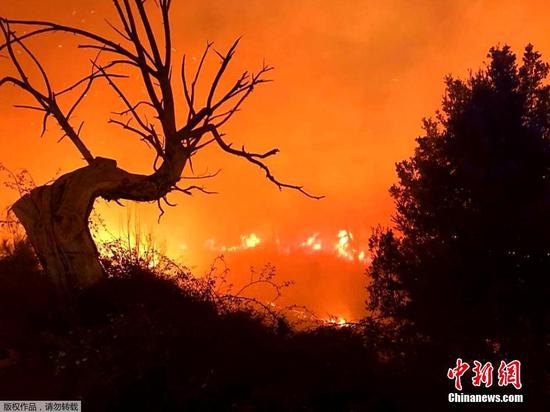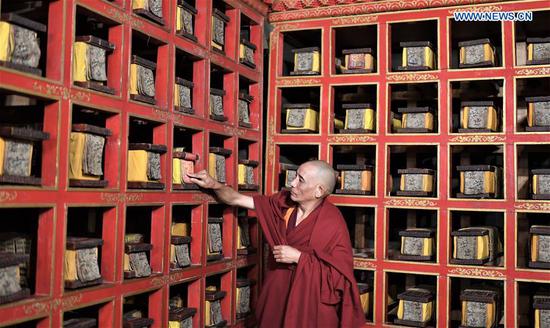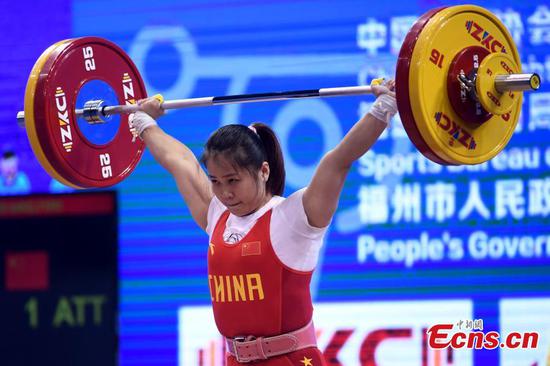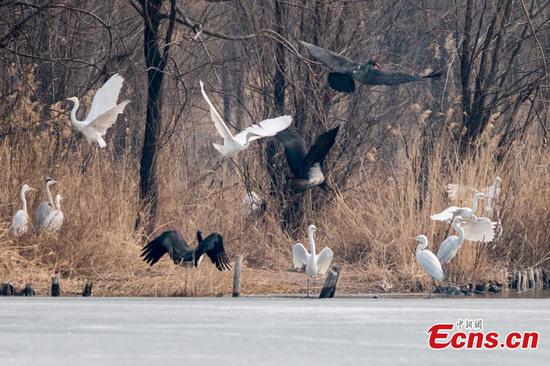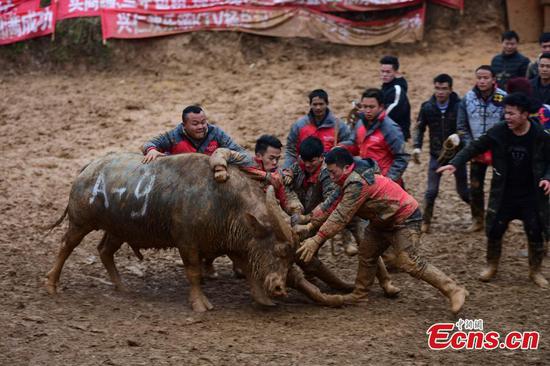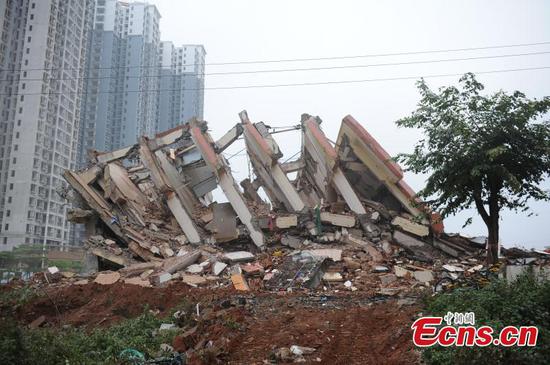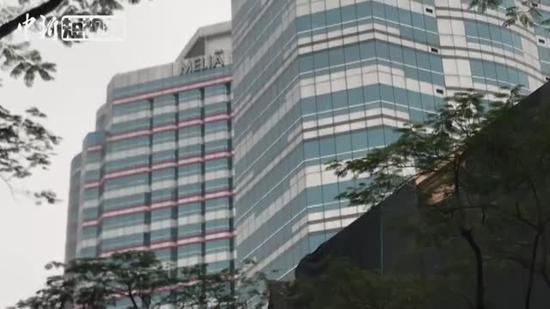Members of a Chinese research team said they have invented a new technology that could transform largely useless farm stubble and straw into fuel that's just as efficient and environmentally friendly as natural gas but at a much lower cost.
The invention, which the team believes is like finding a virtually inexhaustible energy source, could contribute to China's air pollution control campaign. But the technology has yet to be marketed, hindered mainly by the lack of national standards.
Highly efficient combustion can occur in a dust explosion. Based on this theory, the team - from Huazhong University of Science and Technology in Wuhan, Hubei province - created a machine in 2004 to break stubble and straw into particles with a diameter of less than 250 microns - a potentially volatile size.
Headed by environmental science and engineering professor Xiao Bo, the team developed a method in follow-up research to amplify the energy of combustion of the micronized stubble, raising the temperature above 1,450 C.
The team called the micronized fuel xiao and claims it's a sustainable green energy that could replace coal in industrial applications, though it has only been tried so far in industrial boilers.
The technology could be promoted on a large scale, considering the low cost of remolding traditional boilers. The new fuel is also cost-efficient and environmentally friendly, the team said.
The heat generated by 2 kilograms of xiao costing 1.8 yuan (0.27 cents) is equivalent to that generated by 1 cubic meter of industrial-grade natural gas costing more than 3 yuan, said Xiao, the professor.
The price of the new energy could be further reduced through mass production, he said, adding that a combustion temperature of more than 1,450 C means it could replace 60 percent of the solid fuel that is currently consumed in the country.
According to the team, China's 600,000-plus coal-fueled boilers consumed 700 million metric tons of coal. If 10 percent of the boilers shifted to xiao as an energy source, the country would see coal consumption decrease by 40 million tons, and more than 100 million tons of agricultural and forest waste would be put to good use every year.
About 300,000 yuan would be required to convert a coal-fueled boiler that generates 4 metric tons of steam per hour into a xiao-fueled one.
Referring to the new material a "solid natural gas fuel", Xiao added that the total combustion of xiao means there will be no emissions of residual polluting substances, such as volatile organic compounds. The residue of any leftover inorganic substances would be collected, he said.
But the lack of a national standard for fuels like xiao has hindered its adoption, he said. Haoweijia, a food factory in Shenzhen, Guangdong province, for example, used a xiao-fueled boiler for 19 months starting in February 2017 before local authorities ordered its suspension over the lack of standards.
According to a statement from the company, it consumed 3 metric tons of wood per day to fuel its boiler before it turned to xiao. It consumed just 1.7 metric tons of xiao per day after converting its boiler, resulting in savings equivalent to 600,000 yuan annually.
Xiao said he is now turning to a national burner test center for help in drafting an operating specification for xiao-fueled boilers, hoping to remove any regulatory obstacles.









